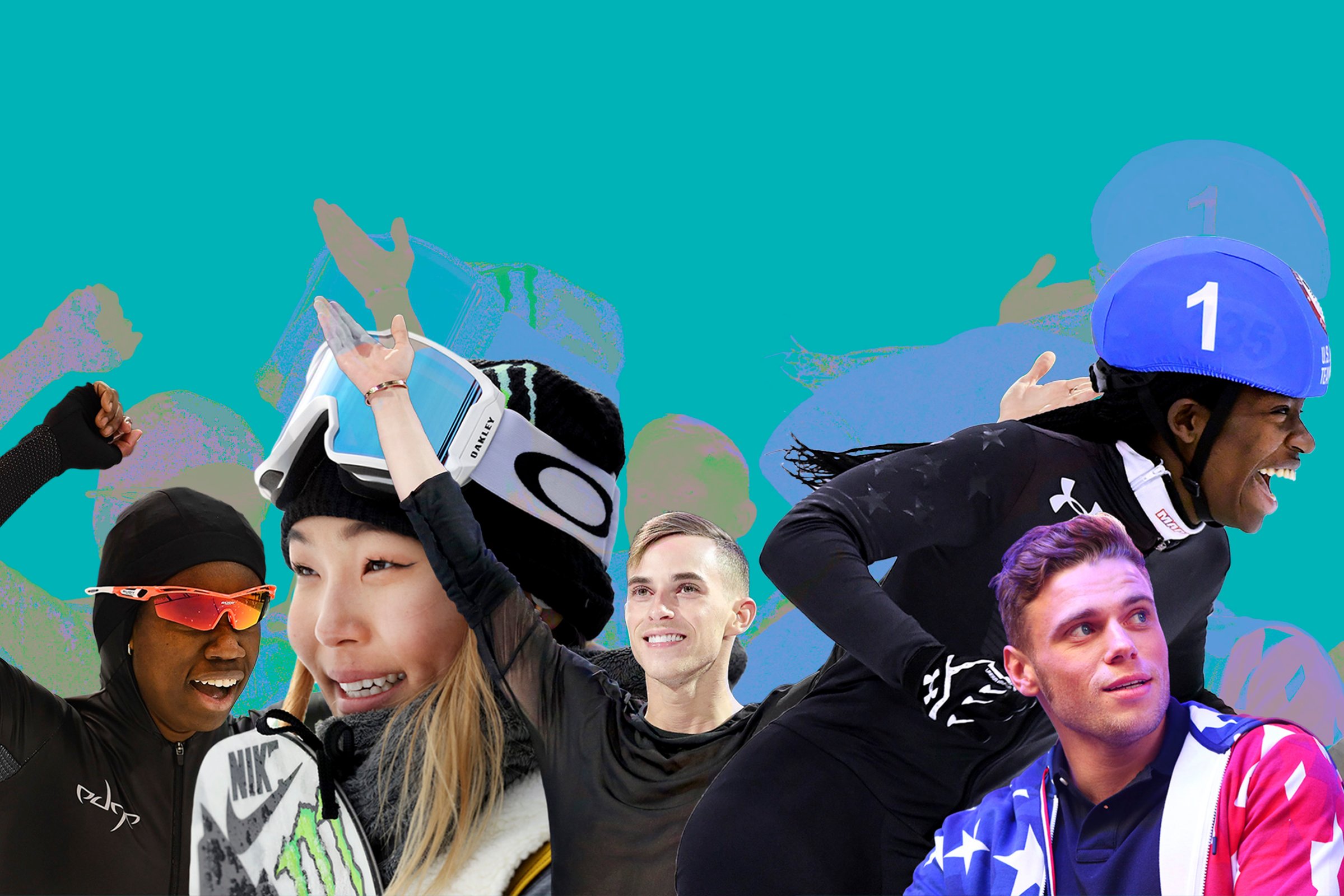
Erin Jackson never expected to qualify for the 2018 Winter Olympics in PyeongChang, South Korea.
The inline skater, who was accustomed to racing on wheels, had just four months of training in long-track speedskating before she hit the ice at the U.S. speedskating trials in early January. She hoped to someday reach the Olympics, an international competition unattainable in the inline skating world. But she was shocked when she qualified right behind Olympic veterans Brittany Bowe and Heather Bergsma, becoming the first African-American woman ever to join Team USA’s Olympic long-track speedskating team.
“It’s a pretty exciting thing — especially since you don’t see many people of color in the Winter Olympics,” Jackson told TIME.
Jackson is one of a group of athletes in the U.S. and around the world breaking barriers in their sports at the upcoming Winter Olympics in PyeongChang. Maame Biney became the first African-American woman to qualify for Team USA’s speed-skating team. Freestyle skier Gus Kenworthy and figure skater Adam Rippon will become the first openly gay male athletes to compete at a Winter Olympics for the U.S. And an African nation will compete in bobsled for the first time with Nigeria’s team of Seun Adigun, Akuoma Omeoga and Ngozi Onwumere, and the country’s first-ever skeleton athlete, Simidele Adeagbo.
These boundary-breakers could represent a changing look for the Winter Olympics, which, in its beginnings, was dominated by wealthy Nordic and Scandinavian countries. Even now, less than half as many countries participate in the Winter Olympics as the Summer Olympics. “These are not sports that have a real background in that many countries,” said Olympic historian David Wallechinsky. “In very few countries do people go with their buddies and do curling.”
Countries in warmer climates are at a particular disadvantage in preparing for the icy sports of the Winter Games. As Jackson trained for her first Winter Olympics, she offered advice for young athletes of color who hope to compete internationally.
“Don’t let the representation or lack thereof deter you from getting out there and trying these sports,” she said. “Even if you don’t see other athletes out there, it’s always nice to be the first.”
Here are 10 athletes and teams that are breaking barriers at the PyeongChang Winter Olympics:
Simidele Adeagbo, Nigeria
Adeagbo is not only part of Nigeria’s first Winter Olympic team, but also the first Nigerian, African or black female athlete to compete in skeleton, a sport in which a competitor rides down an ice track on a sled, face-down.
Adeagbo was once a track star who was a two-time U.S. Olympic Trials finalist in the triple jump in 2004 and 2008. While she did not qualify back then, the 36-year-old athlete came out of her retirement from track and field to compete in skeleton.
“This is about breaking barriers in winter sports,” she told Nike, where she works as a marketing manager in Johannesburg, South Africa. “It’s about making history. And leaving a legacy. It’s about moving sport forward. That’s so much bigger than just me being an Olympian.”
Maame Biney, United States
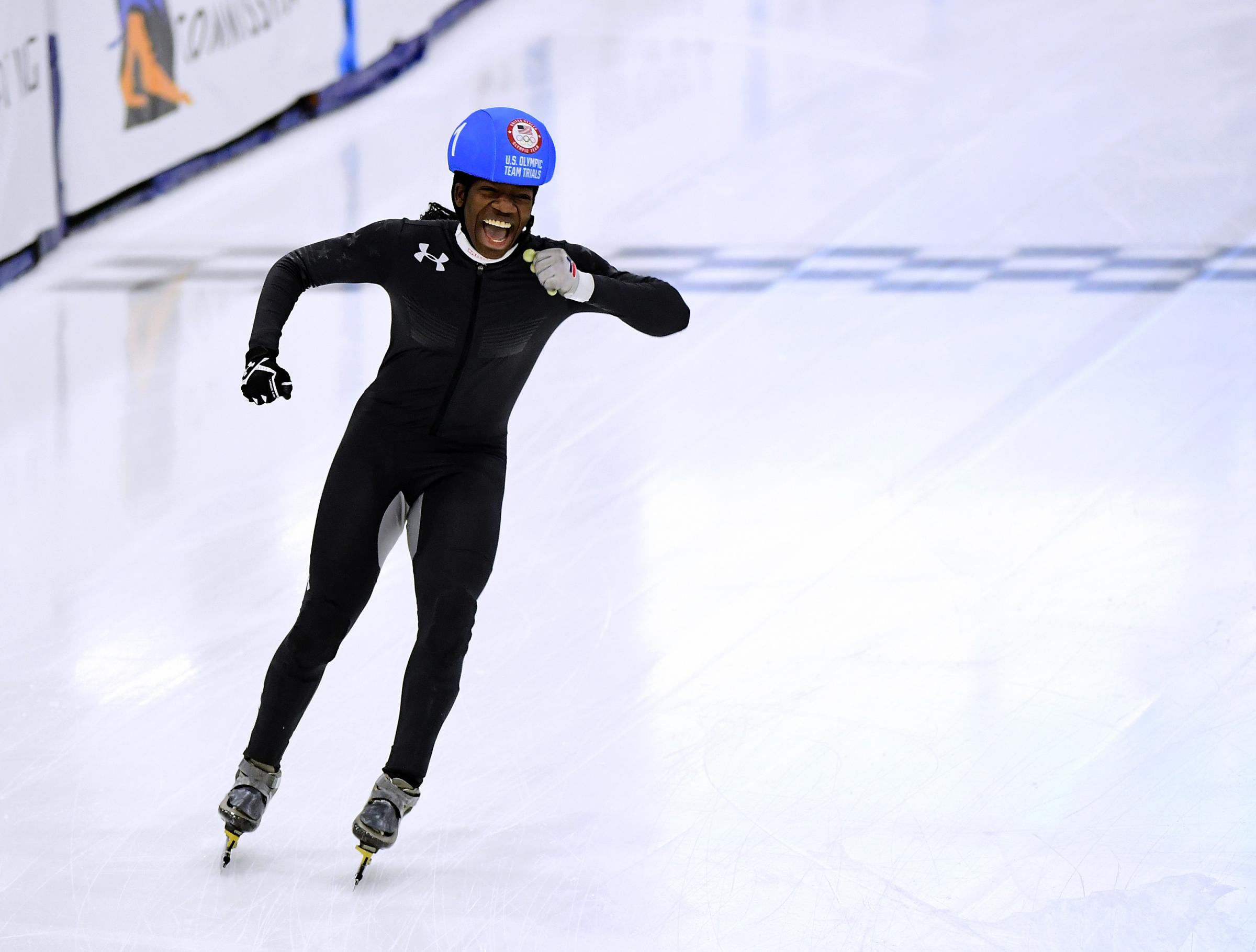
The first African-American woman to qualify for Team USA’s speedskating team, Maame Biney will be making her first appearance at the 2018 Olympics. And she could have a shot at getting a medal — a goal of hers heading into the Games, she told Interview Magazine, and a possibility after she won the women’s 500 meter distance a the U.S. Olympic Trials in December.
“I am super honored to be able to be part of this, because I know that us African-American girls and women haven’t been able to be in this situation before,” she told HuffPost. “I’m really honored to inspire other women, African-American or any other race, to get out there and do what you can to succeed.”
Biney is also the youngest member of Team USA’s speedskating team. She turned 18 on Jan. 28, days ahead of the Opening Ceremony of the Games.
Biney follows Shani Davis, who was the first black athlete to qualify for the U.S. short track team back in 2002. In 2006, he became the first black athlete to win a gold medal in an individual Winter Olympic sport. Davis will make his fourth Winter Olympics appearance this month.
Erin Jackson, United States
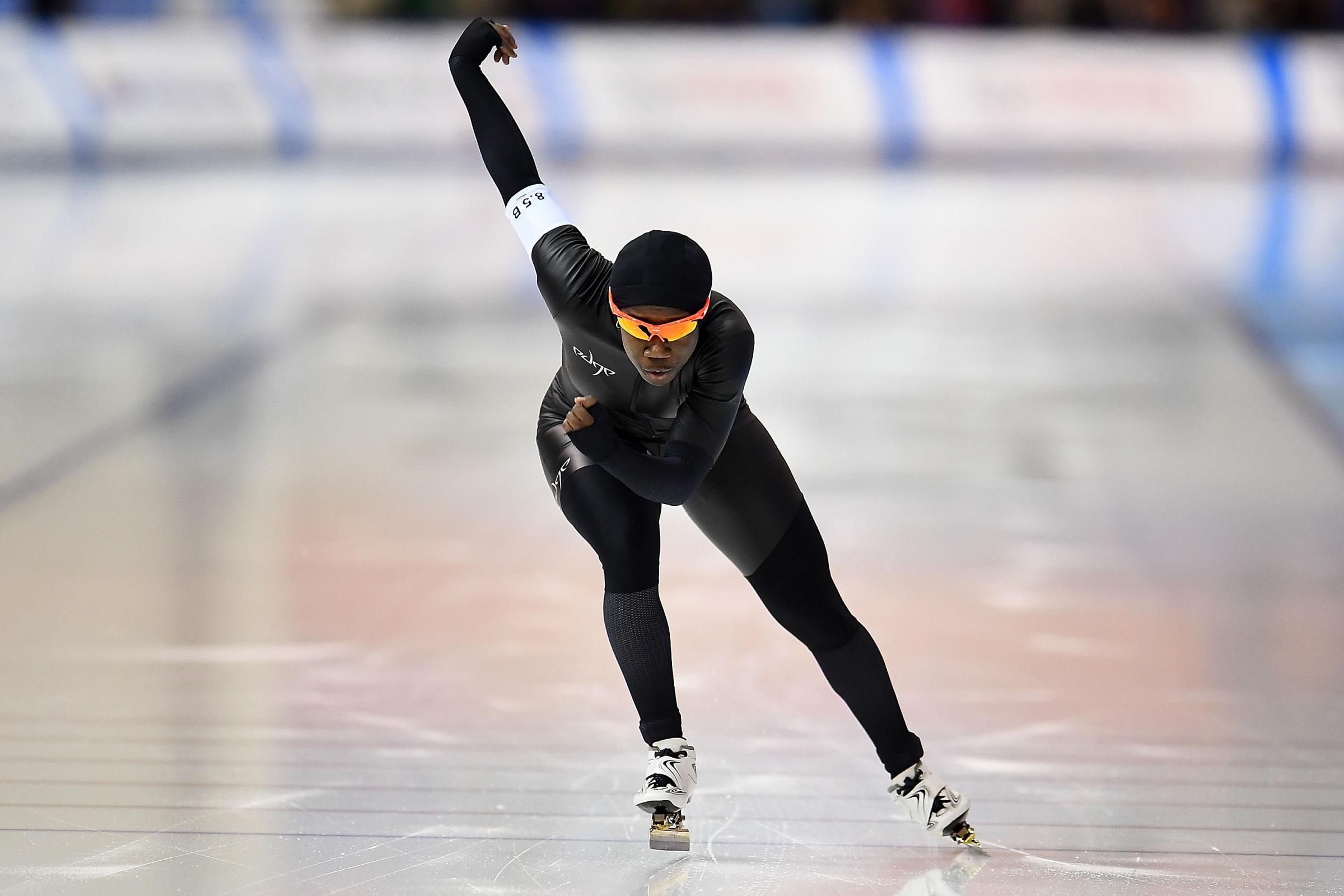
Jackson will be the first black woman to compete for the U.S. in long-track speedskating.
“You might have a young black girl watching these Winter Olympic sports thinking, ‘Well, there’s not anyone like me out there. I don’t know if there’s a place for me in these sports,'” Jackson told TIME. “But I’m looking forward to being in the Winter Olympics and showing, OK, we do have some representation in these sports.”
The athlete now has just five months of total experience in speed skating under her belt. But Jackson is used to transferring her skills to different sports — she has competed internationally for Team USA’s inline skating and roller derby teams.
Akwasi Frimpong, Ghana
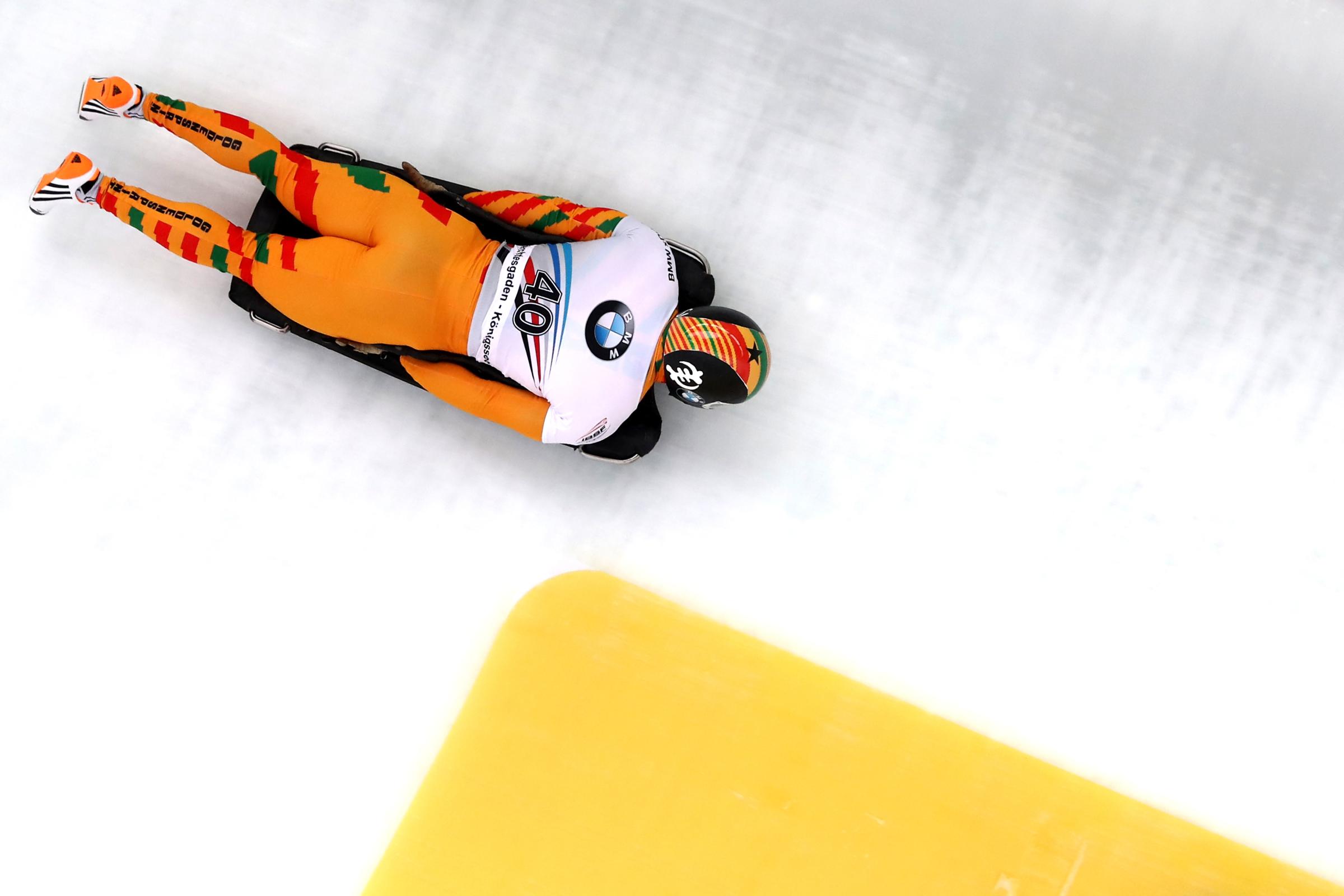
With experience in a number of sports, Akwasi Frimpong is Ghana’s first athlete to compete in skeleton and the country’s second-ever Winter Olympian. He has said he hopes his appearance in the Games will boost winter sports in Ghana, which previously competed in the 2010 Winter Games in Vancouver.
“My goal is to get the Ghana sport authorities behind our federation to support the development of winter sport in Ghana and prepare athletes towards the 2022 Beijing Winter Games and beyond,” Frimpong told ESPN.
“There is a lot of talent in Ghana and we need to utilize that in the winter sport,” he added.
Frimpong almost appeared in the 2012 Summer Olympics — in a different sport and for a different country. He has dual citizenship in Ghana and the Netherlands and was among the contenders to qualify for the Netherlands’ 100-meter relay team, but got injured and did not compete.
Gus Kenworthy, United States
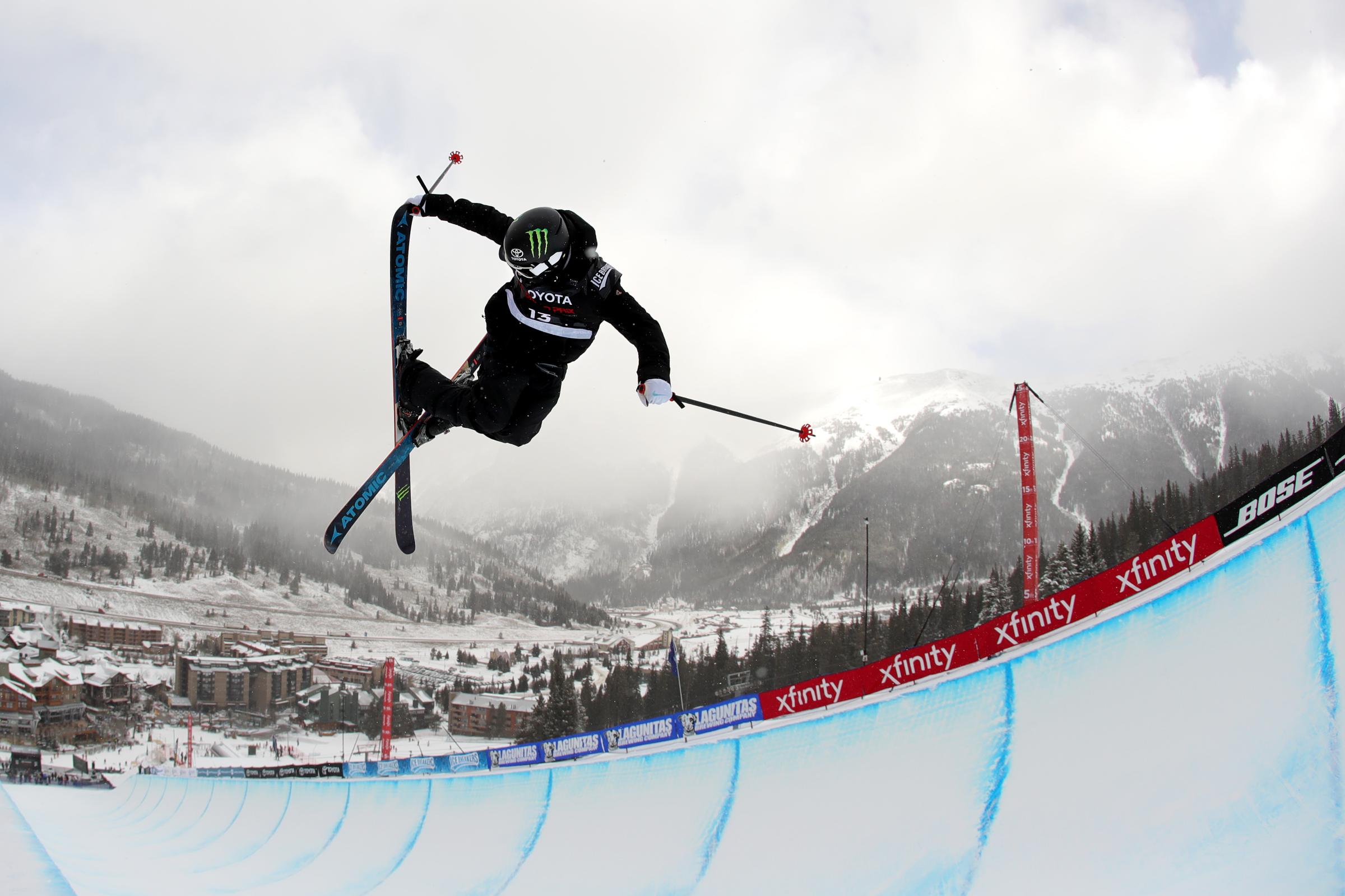
Olympic silver medalist Gus Kenworthy will become one of the first openly gay athletes to compete for the U.S. at the Winter Olympics with his upcoming appearance in PyeongChang. The freestyle skier, who came out in 2015 in an interview with ESPN Magazine, is chasing another medal at this year’s Games, where he will compete in both slopestyle and half-pipe. He previously won a silver medal at the 2014 Games in Sochi in slopestyle.
“I don’t think I could have ever come out as a gay athlete 30 years ago and expected to be successful in my sport,” Kenworthy told TIME ahead of the Olympics. “My story’s indicative of change.”
In his interview with TIME’s Sean Gregory, Kenworthy said he’s noticed a change in the culture within his sport since he came out. While training with other athletes, “They’ll be like that’s so ga-…lame,” he told TIME. “That actually means a lot to me.”
Chloe Kim, United States
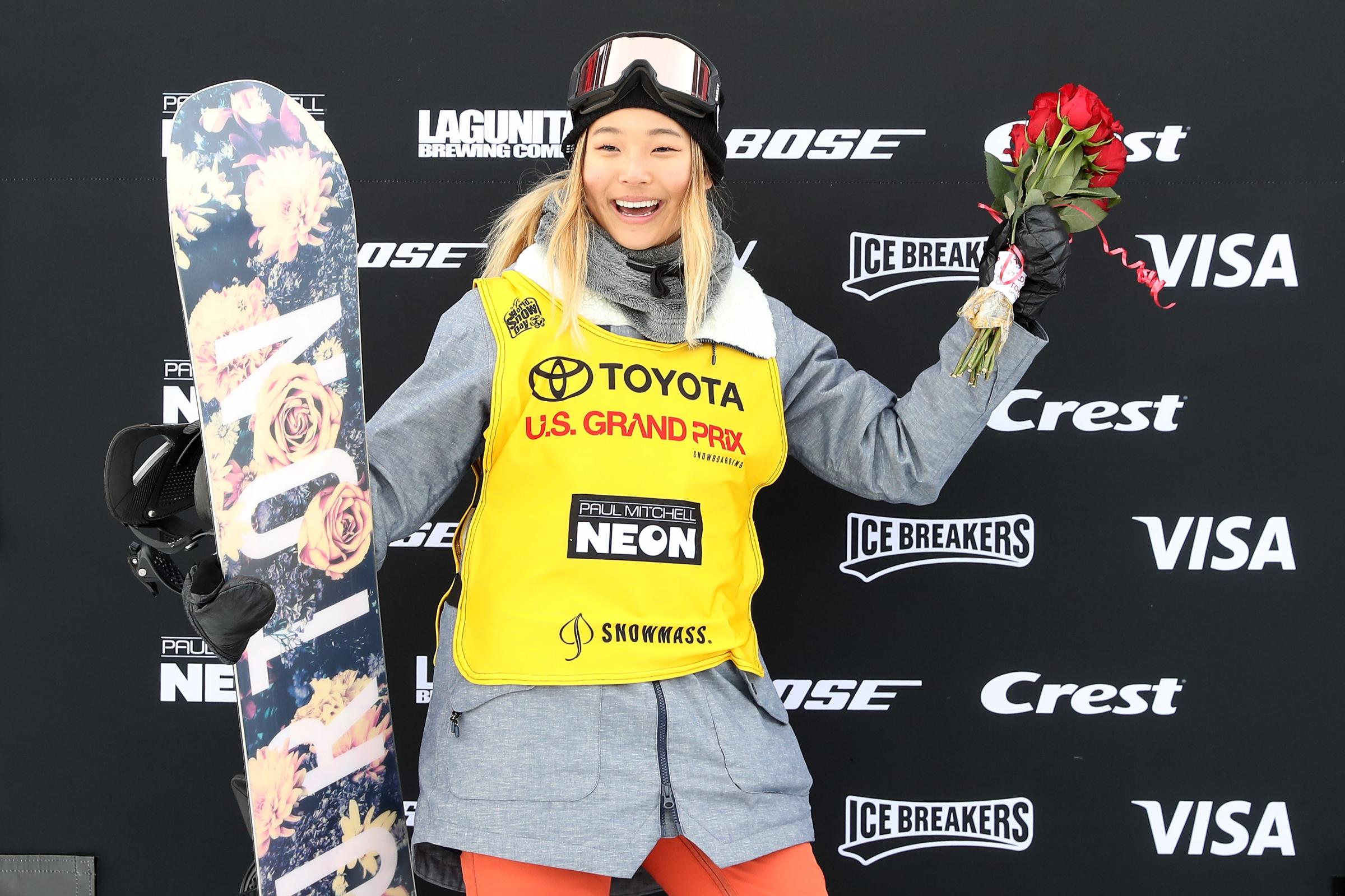
Snowboarding phenom Chloe Kim was the first woman to land back-to-back 1080s in competition — and she’s not even 18 years old yet. Kim is a gold medal favorite heading into the Games in PyeongChang, where she will compete in the halfpipe. If she wins gold, she will be the youngest female snowboarder to do so at the Olympics.
With family in South Korea who plan to come cheer for her at the Winter Olympics, Kim told TIME said it will “be a good experience to go through such a crazy event with my family.” “But at the same time,” she added, “I’m very worried, ’cause it’s the freaking Olympics. I want to do really good. I’ve got to nail it.”
Kim, twice-named one of TIME’s 30 Most Influential Teens, technically qualified for the 2014 Games in Sochi, but, at age 13, was too young to compete.
Adam Rippon, United States
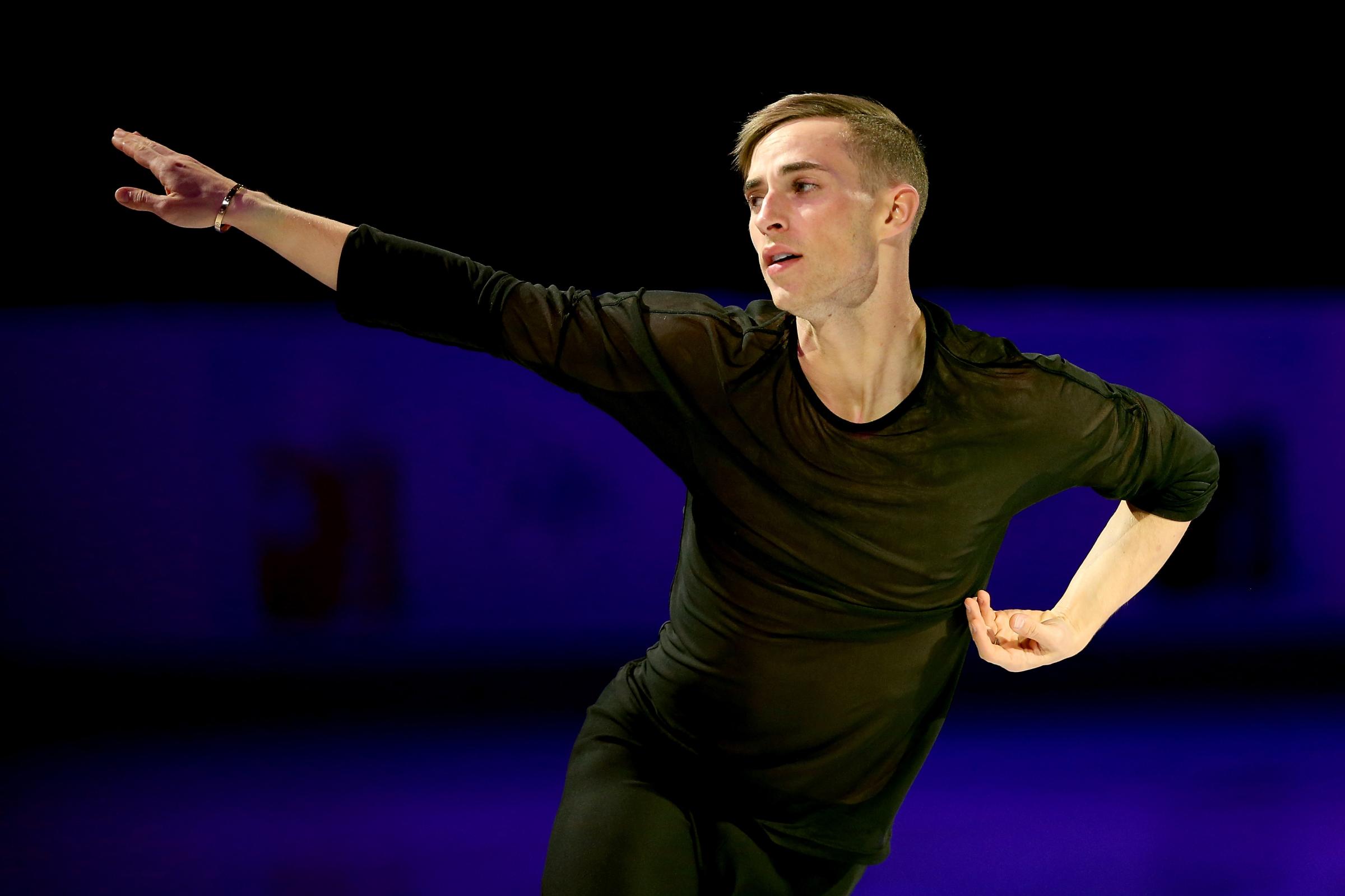
Along with Kenworthy, Adam Rippon is one of the first openly gay athletes to compete at the Winter Olympics for the U.S. The figure skater and 2016 U.S. national champion will make his Olympic debut in PyeongChang.
“To be the first openly gay man ever competing at the Winter Games I think is great,” Rippon told TIME’s Alice Park. “But at the same time, I’m a little surprised that it’s 2018 and I’m the first. In this day and age I think it’s so important to be visible and stand up for what you believe in and let the young kids know that it’s OK to be yourself.”
Rippon made headlines in January following an interview with USA Today in which he criticized the choice of Vice President Mike Pence to lead the U.S. delegation at the Games. Rippon alleged the vice president supports gay conversation therapy, based on a 2000 message on his congressional campaign website where he suggested funding should be given to “those institutions which provide assistance to those seeking to change their sexual behavior.”
In a statement to USA Today, Pence’s press secretary said the accusation is “totally false and has no basis in fact.”
By qualifying just days before Kenworthy, Rippon became the first openly gay athlete to ever qualify for the Winter Olympics for the U.S.
Sabrina Simader, Kenya
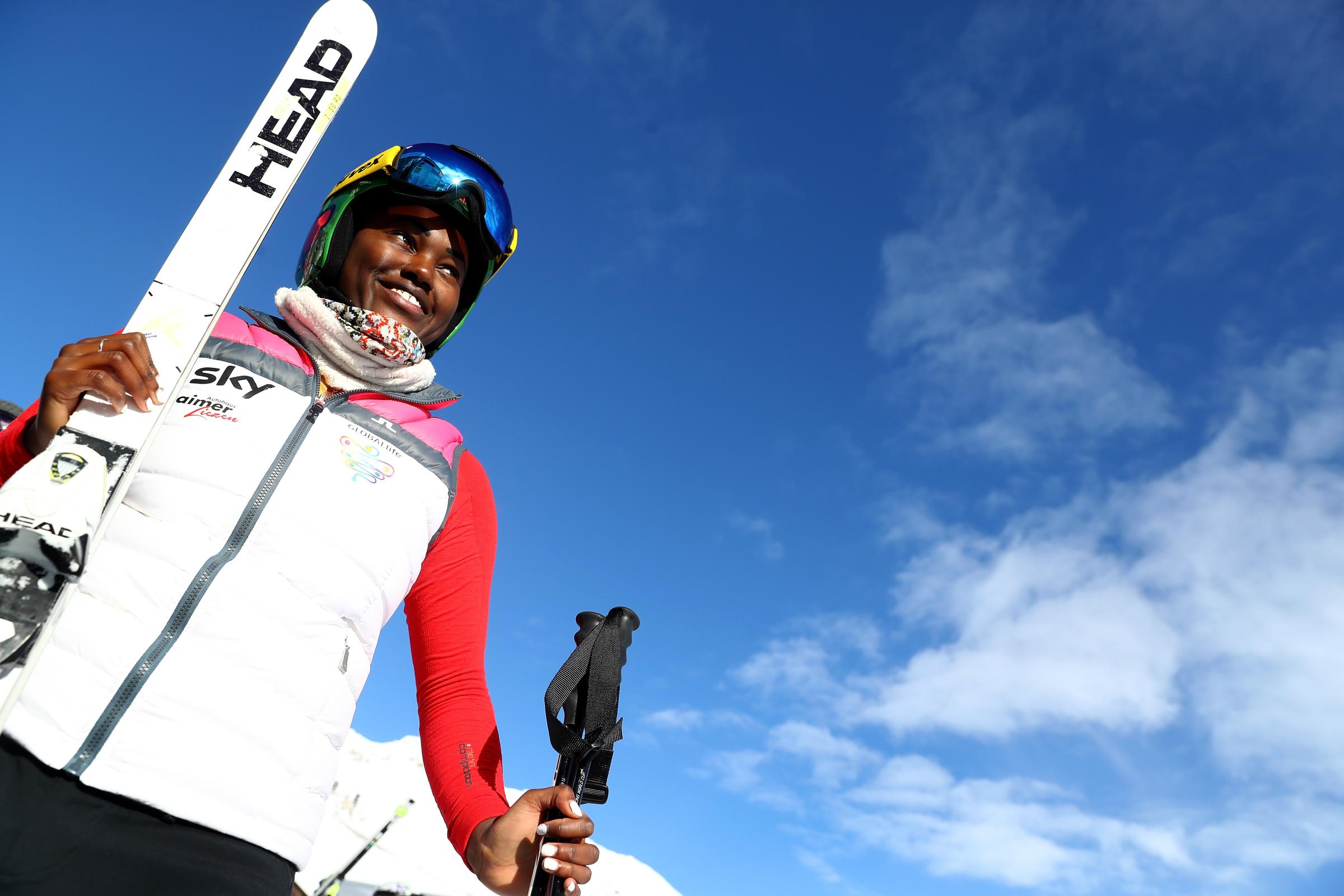
Sabrina Simader is the first alpine skier to compete at a Winter Olympics for Kenya. The 19-year-old is also the only delegate from the country at the Olympics this year, and she aims to make an impact.
“Because I’m a Kenyan, that makes me exotic and some people think I can’t ski well,” she told Reuters in January.
“At the beginning, people looked at me — OK, a black skier always gets looked at — but when your performances get better and you improve, you win them over,” she added.
Simader was born in Kenya and raised in Austria. She previously represented Kenya at the Winter Youth Olympics in 2016 and at the world skiing championships in St. Moritz, Switzerland.
Elana Meyers Taylor, United States
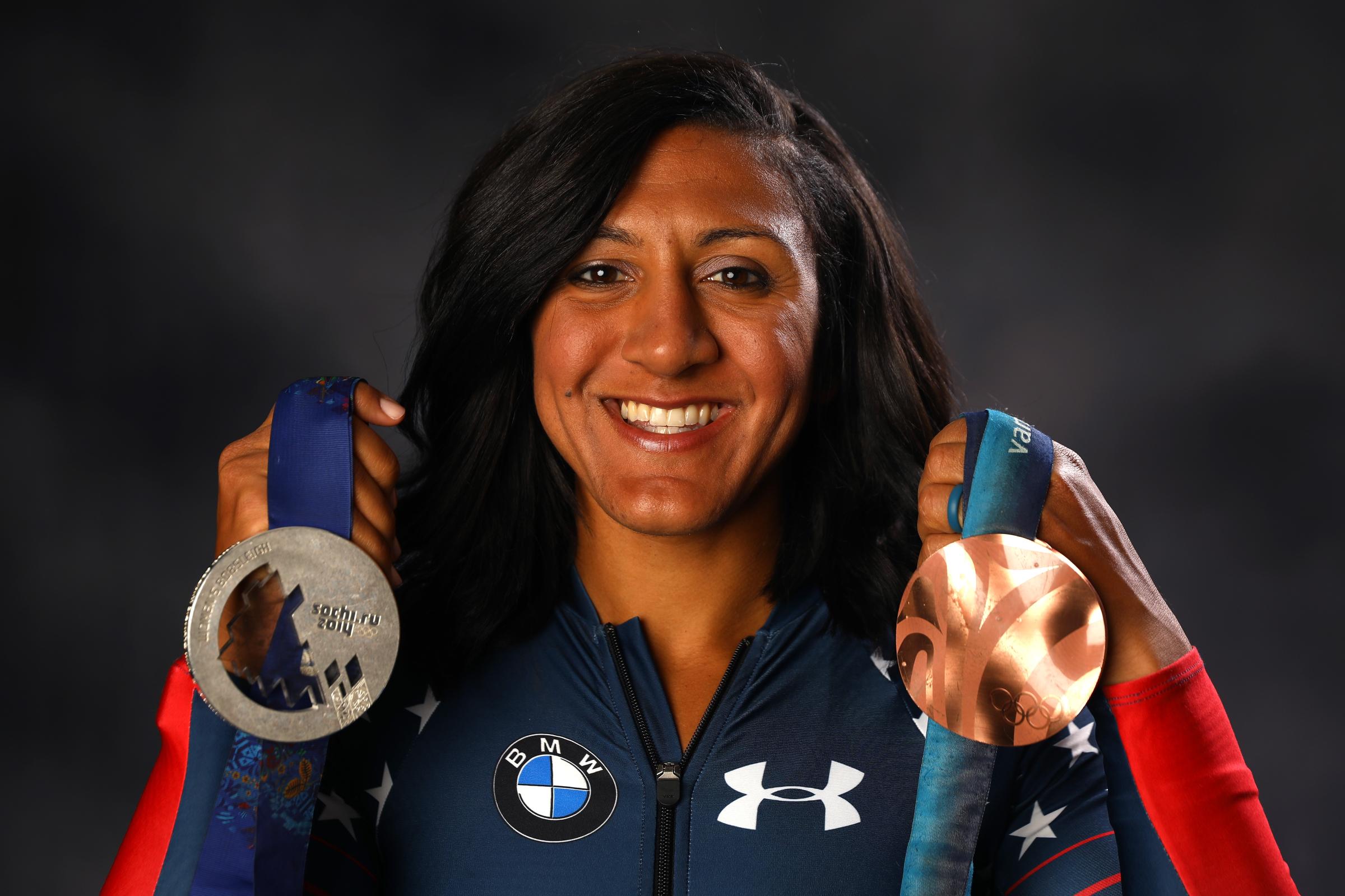
The first woman to drive a four-man bobsled, Elana Meyers Taylor often uses her platform to promote gender and racial equality in her sport and beyond. Meyers Taylor will become the first woman to represent the U.S. three times in bobsled at the Winter Olympics.
The Olympic veteran is chasing a gold medal in PyeongChang — one that would complete her collection of a silver and bronze in 2014 and 2010, respectively. It would be the first Olympic gold for the U.S. women’s bobsled team since the sport debuted at the 2002 Games in Salt Lake City.
“The more and more women become successful, the more and more we are going to break through these barriers,” Meyers Taylor told TIME in an interview last year.
“I go out there to try to be the best version of myself. In some of the places we compete, I might be the only presentation people see of a woman of color or I might be the only example they see of a strong, athletic woman,” she added.
Nigerian Bobsled Team
Three Nigerian women are the first team from Africa to compete in bobsled at the Winter Olympics.
Seun Adigun, Akuoma Omeoga and Ngozi Onwumere are all Nigerians who live in Texas and were once collegiate track and field athletes. Adigun, who organized the team, competed for Nigeria in the 100-meter hurdles at the 2012 Summer Olympics.
In interviews with TIME, the athletes discussed how their participation is important for Nigeria and Africa, and how having a platform at the Olympics could affect the future of winter sports there.
“There is no reason why people should feel like there’s only one lane they need to stay in,” Adigun told TIME. “Diversity explains to people that there are no limits in this life.”
Sean Gregory and Alice Park contributed to this story
More Must-Reads from TIME
- Why Trump’s Message Worked on Latino Men
- What Trump’s Win Could Mean for Housing
- The 100 Must-Read Books of 2024
- Sleep Doctors Share the 1 Tip That’s Changed Their Lives
- Column: Let’s Bring Back Romance
- What It’s Like to Have Long COVID As a Kid
- FX’s Say Nothing Is the Must-Watch Political Thriller of 2024
- Merle Bombardieri Is Helping People Make the Baby Decision
Contact us at letters@time.com